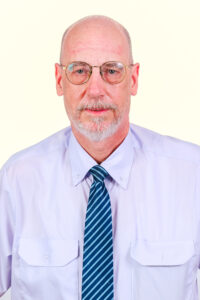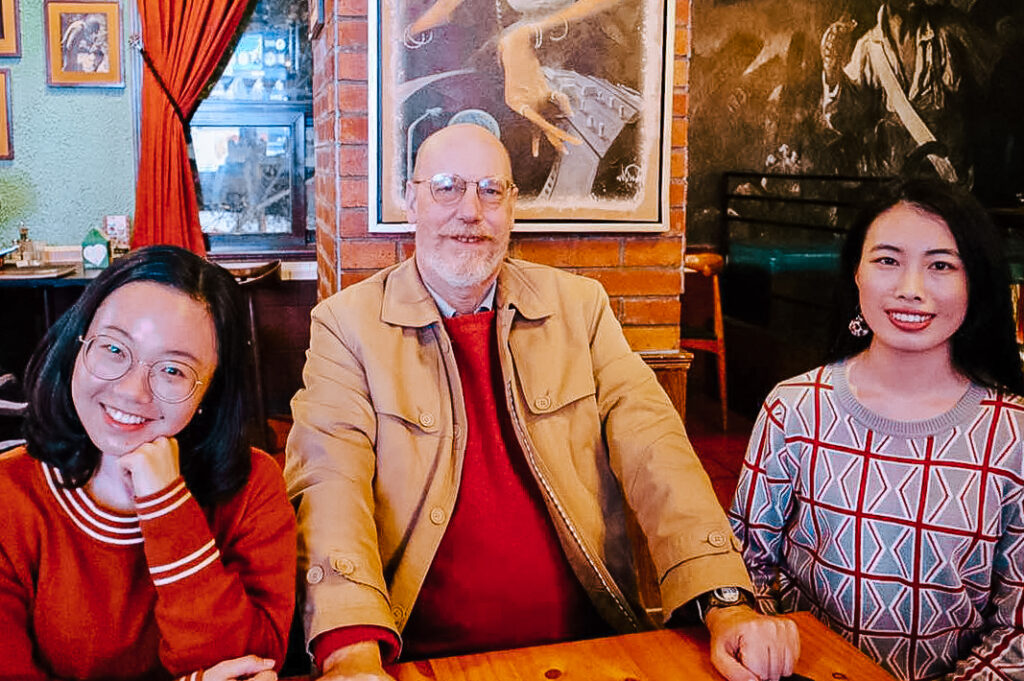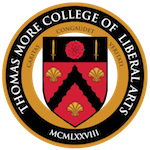 While Thomas More College graduates can mostly be found living and working in the United States, some wind up in far-flung places. For Hal Swindall ’85, the decades after college and graduate school have taken him to east Asia, where he has been a “vagabond” English professor in major and minor universities alike. He currently works at EMS Language Centre in Kuala Lumpur, where he teaches a Pearson Test of English preparation course of his own design, as well as English courses for adults.
While Thomas More College graduates can mostly be found living and working in the United States, some wind up in far-flung places. For Hal Swindall ’85, the decades after college and graduate school have taken him to east Asia, where he has been a “vagabond” English professor in major and minor universities alike. He currently works at EMS Language Centre in Kuala Lumpur, where he teaches a Pearson Test of English preparation course of his own design, as well as English courses for adults.
Mr. Swindall’s other experience includes serving as a Virtual English Language Fellow for the State Department, where he taught English teachers in the Philippines as well as Indian civil service officer trainees. On the diplomatic side, he serves as a Citizen Liaison Volunteer for the U.S. embassy in Kuala Lumpur. He also writes for AsiaNews.it.
Mr. Swindall took some time to speak with us about how TMC prepared him for his unique career path, and how the Great Books offer “a key into understanding just about anything, from politics and government to art and philosophy.”

Can you tell us about your graduate studies?
After TMC, I earned a master’s in English in just one year at Claremont Graduate University, which suited my English-oriented interests at the time. Then I attended the University of California, Riverside for a doctorate in comparative literature (English major, French and Italian minors) because I felt a strong attraction to France and Italy. This was largely a result of the Rome program, although my interest in those countries dates to my teens. I traveled extensively in France and Italy during my doctoral days over summer vacations, and even worked a month in a Paris restaurant.
What role has your time at Thomas More played in your continued studies and writing? Do you draw from your experience of TMC’s Rome semester in your life abroad?
TMC gave much impetus into the journalistic and academic writing I have done for some time, a feeling that they are connected to the world’s knowledge and to perpetuating holistic literacy. I plan to follow this project to see where it leads me, as well as the people who read what I write.
The buildings and paintings are among my best memories of Rome; especially the walks we took around the city visiting churches. This immersion in religious art and architecture kindled in me an interest that continued in China and Korea, where I have hiked many sacred mountains to visit temples. Some day, I plan to publish a guidebook or study on Buddhist or Daoist temples and their paintings.
Language, literature, linguistics, and culture all come together in my teaching, and TMC gave me this initial insight, which I continue to draw from in relating to my students and colleagues.
–Hal Swindall ’85
What responsibilities does your role at the EMS Language Centre entail? What challenges have you faced working in education?
My role is primarily that of an English instructor, although I also have editing duties and conduct business coaching on the side. From 11 a.m. to 1 p.m., I teach a business English elective that I designed, which is popular with more independent students; then, in the afternoons, I teach intensive general English classes to adults. EMS is only two blocks from Petronas Towers and a major language center in Kuala Lumpur, so it’s quite an honor to get a job there. My contract lasts another fourteen months, and I may renew it.
Overall, I have succeeded in remaining stably employed in education for thirty-plus years, which is quite an accomplishment (if I may say so). There have been many hard times at institutions with lower-level students and periods of unemployment, but I always pulled myself out of them and found decent places to work. In each new job, the grading system, students, schedule, etc., were different, but I adapted quickly and got through numerous tight spots.
What role do you think education in the liberal arts has played in the lives of people you have taught?
Throughout my time in east Asia, I have found that students who possessed some idea of foundational classics, Eastern or Western, are more perceptive about world events and their interpretation than those with no such background or interests. I have been able to use my Western classics background from TMC and other places as a gateway to understanding Eastern philosophy—especially Buddhism and Daoism, but currently Islam—and to build bridges with my students that extend out from English language study. Language, literature, linguistics, and culture all come together in my teaching, and TMC gave me this initial insight, which I continue to draw from in relating to my students and colleagues.
These comments have been edited and condensed.
For further reading:
Finding Success after Graduation: An Interview with Dr. John Martin ’11
